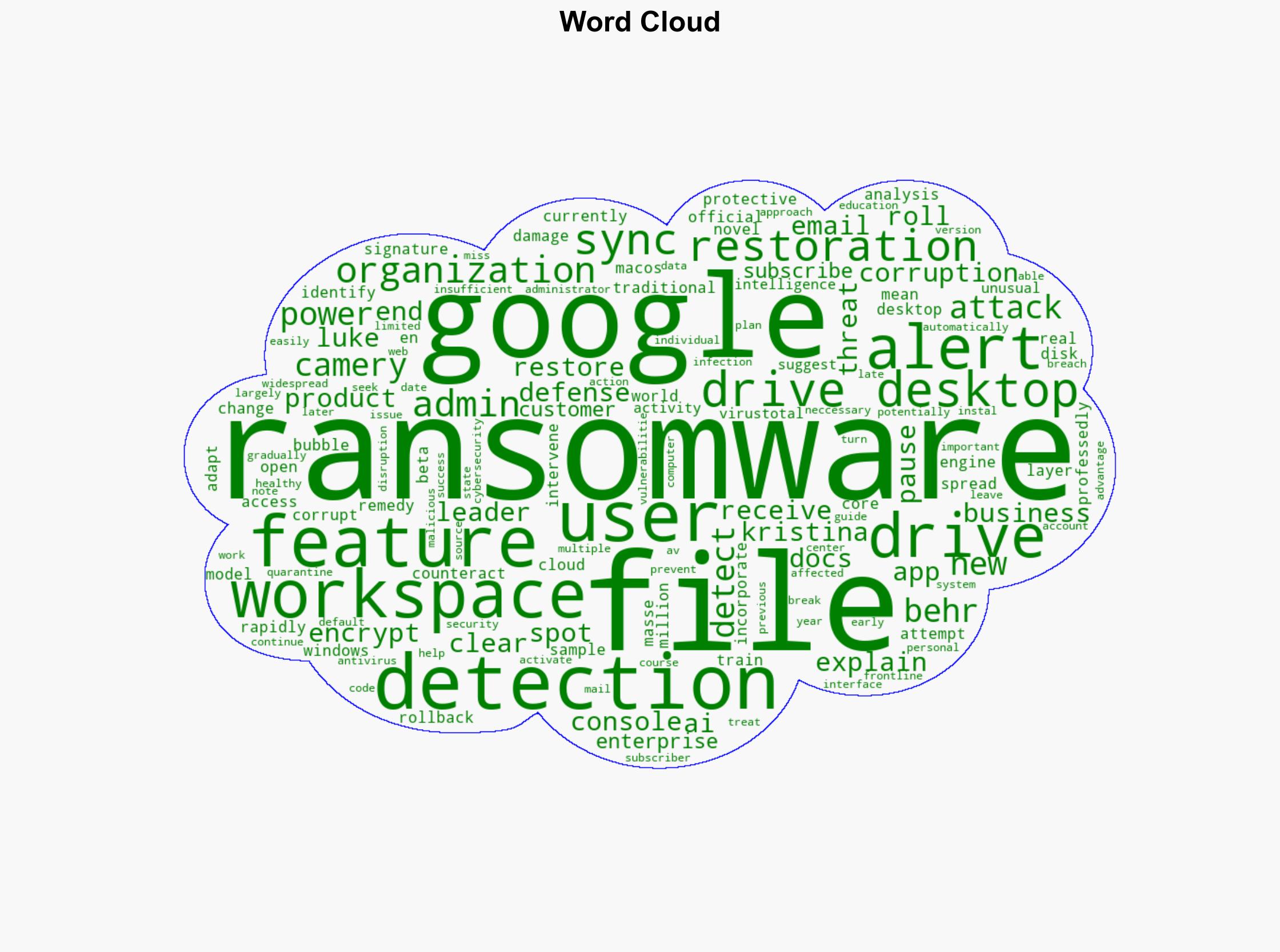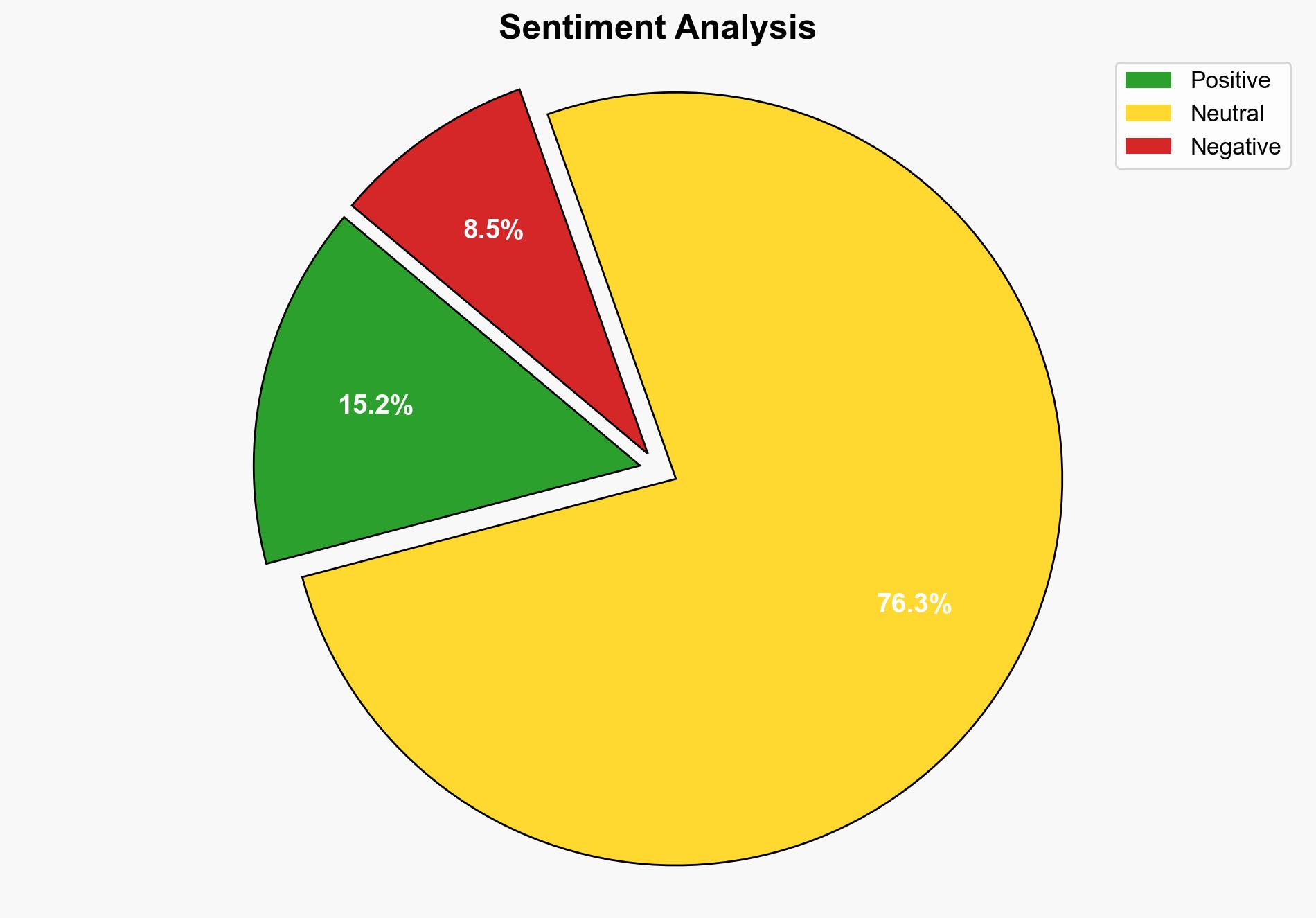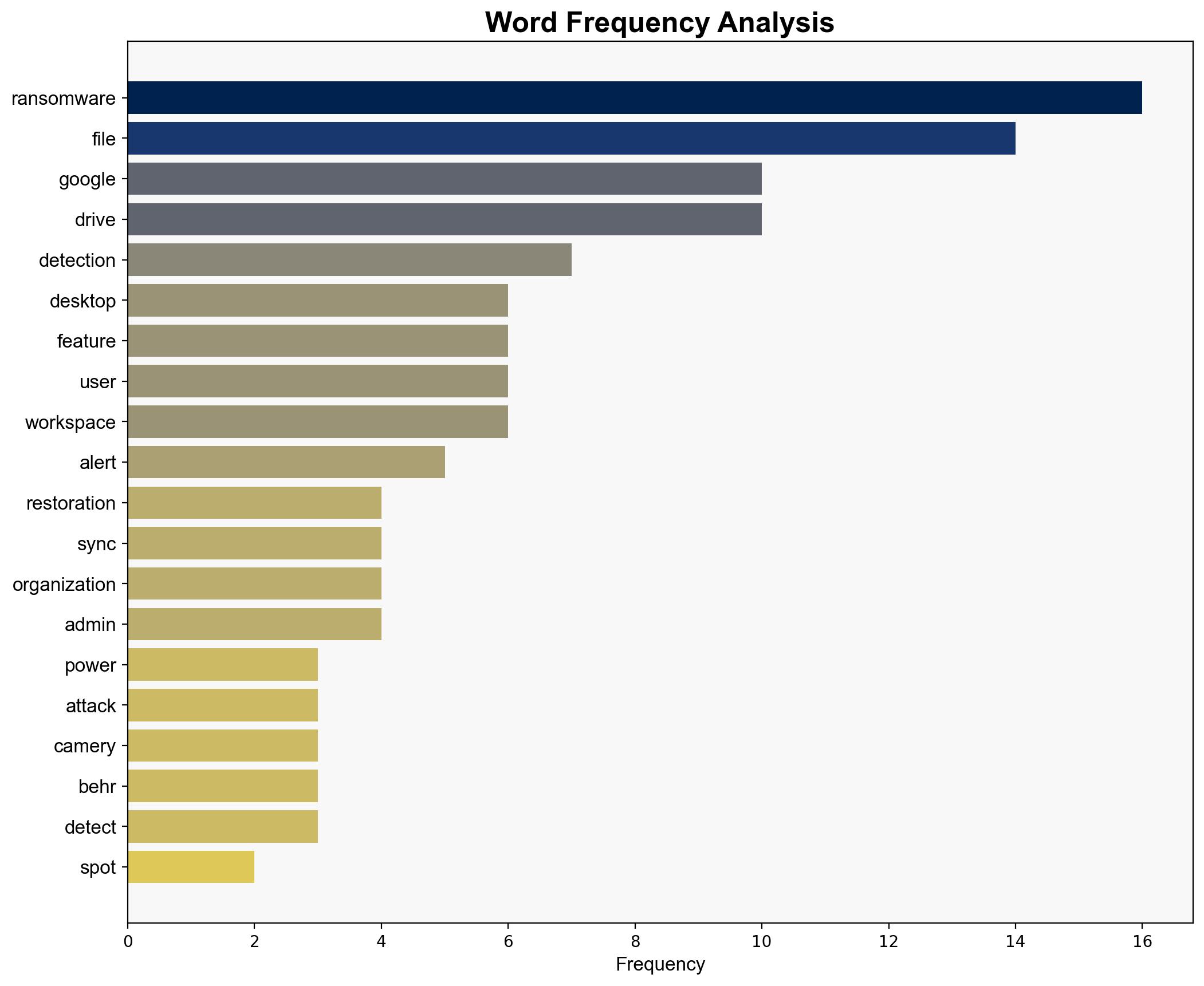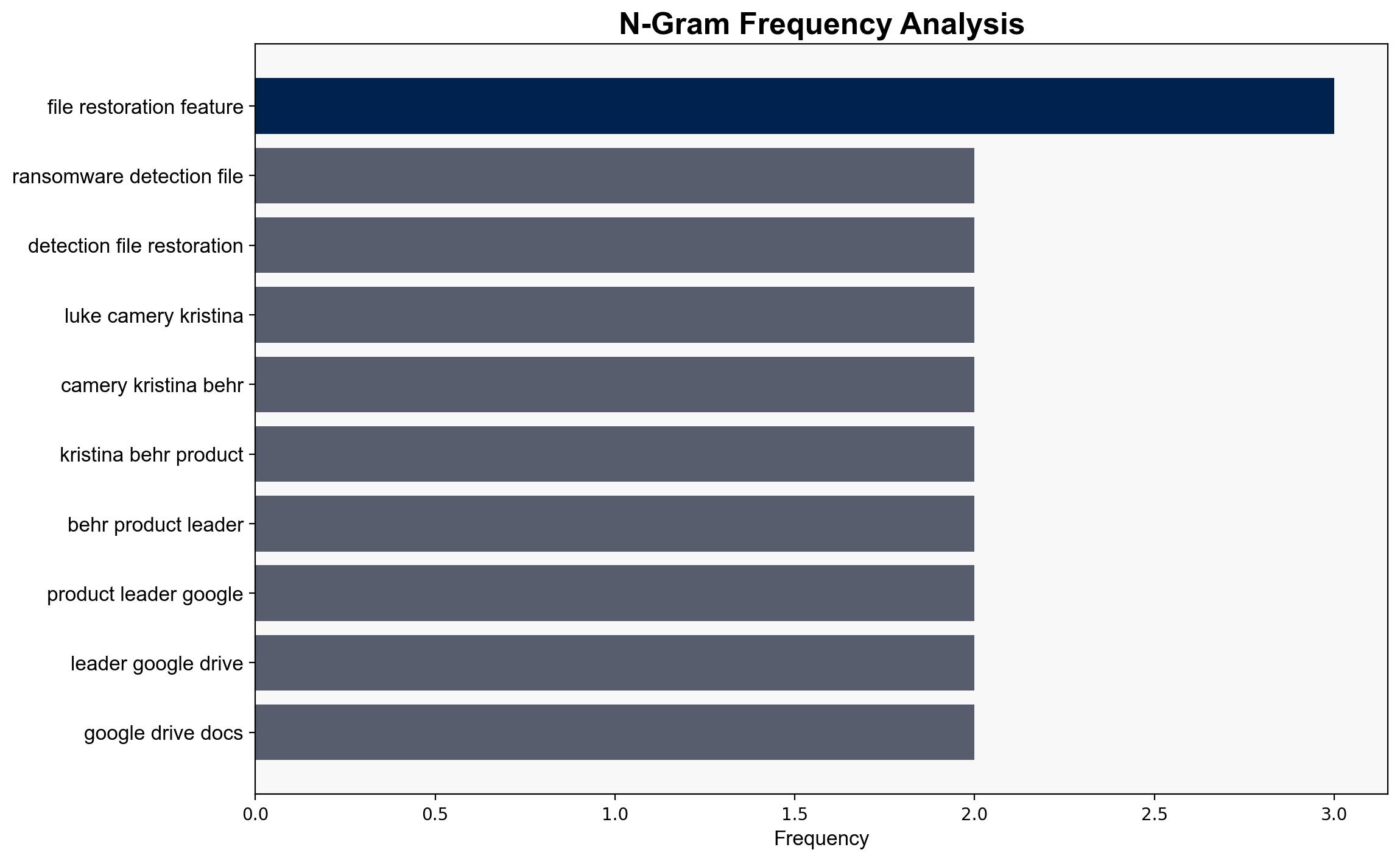Google Drive for desktop will spot stop and remedy ransomware damage – Help Net Security
Published on: 2025-10-01
Intelligence Report: Google Drive for desktop will spot stop and remedy ransomware damage – Help Net Security
1. BLUF (Bottom Line Up Front)
The introduction of AI-powered ransomware detection and file restoration in Google Drive for desktop is a potentially significant advancement in cybersecurity. The most supported hypothesis suggests this feature will enhance organizational resilience against ransomware attacks. Confidence level: Moderate. Recommended action: Organizations should evaluate the integration of this feature into their cybersecurity strategies to mitigate ransomware risks.
2. Competing Hypotheses
Hypothesis 1: The AI-powered ransomware detection and file restoration feature in Google Drive will significantly reduce the impact of ransomware attacks on organizations by quickly identifying and mitigating threats.
Hypothesis 2: The new feature may not substantially enhance security due to potential limitations in AI detection capabilities and user adoption challenges.
Using Analysis of Competing Hypotheses (ACH), Hypothesis 1 is better supported due to the integration of real-world ransomware samples and threat intelligence, which suggests a robust detection capability. However, Hypothesis 2 cannot be entirely dismissed due to potential gaps in AI adaptability and user engagement.
3. Key Assumptions and Red Flags
Assumptions:
– AI models can effectively adapt to novel ransomware threats.
– Users will properly configure and utilize the new feature.
Red Flags:
– Over-reliance on AI without human oversight may lead to missed detections.
– Lack of detailed performance metrics on the AI model’s effectiveness.
4. Implications and Strategic Risks
The successful deployment of this feature could set a new standard in cybersecurity, encouraging other tech companies to adopt similar measures. However, if the feature fails to perform as expected, it could lead to a false sense of security and increased vulnerability. The economic impact could be significant if organizations face reduced ransomware-related disruptions, but there is a risk of escalating cyber threats as attackers adapt.
5. Recommendations and Outlook
- Organizations should conduct pilot tests to assess the feature’s effectiveness in their specific environments.
- Develop a comprehensive cybersecurity strategy that includes both AI-driven and traditional security measures.
- Scenario Projections:
- Best Case: Broad adoption leads to a significant decrease in ransomware incidents.
- Worst Case: Feature underperforms, leading to increased vulnerability.
- Most Likely: Gradual improvement in security posture as organizations adapt to the new feature.
6. Key Individuals and Entities
Luke Camery, Kristina Behr
7. Thematic Tags
national security threats, cybersecurity, counter-terrorism, regional focus




